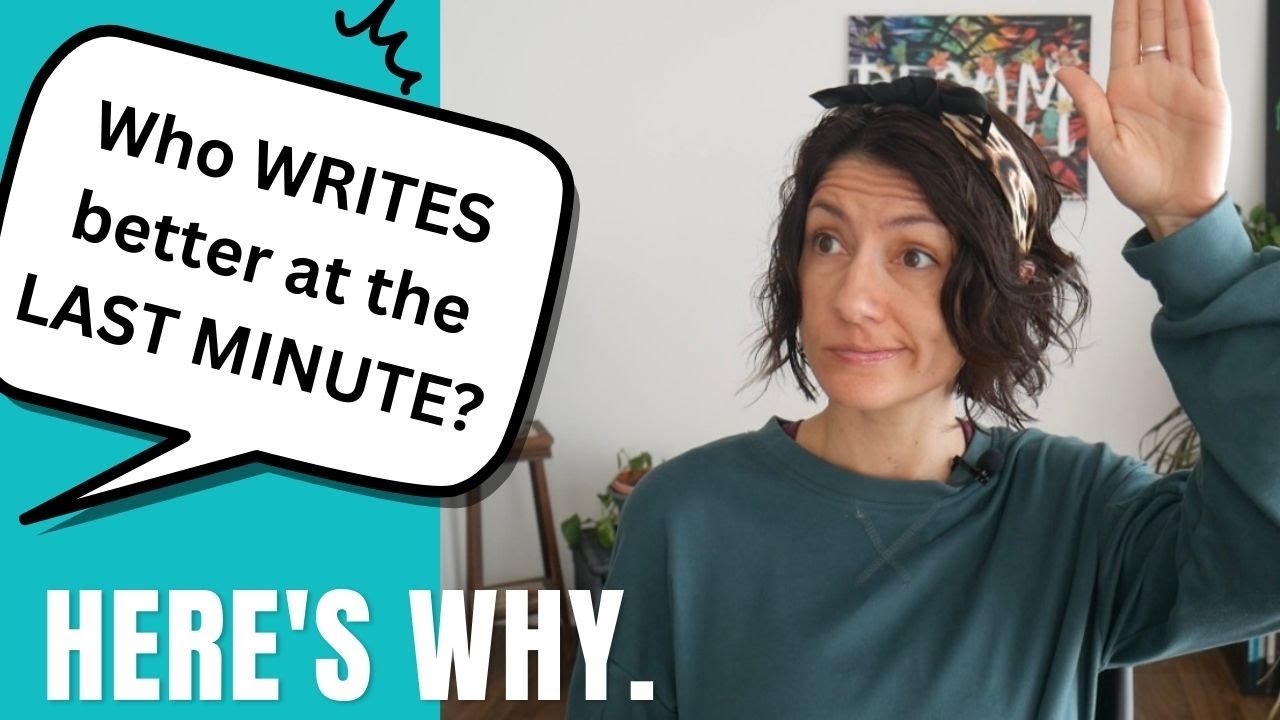The transcript discusses how stress can paradoxically enhance creativity and focus, particularly through the use of tight deadlines and cold exposure.
Key points include:
-
Experiencing Urgency: The speaker reflects on the common experience of feeling productive when facing a tight deadline, explaining that this sense of urgency can stimulate focus and concentration due to increased levels of adrenaline and epinephrine.
-
Cold Exposure Benefits: Taking a cold shower for one to five minutes is suggested as a method to induce a healthy stress response, which not only promotes adrenaline release but can also enhance dopamine levels. The speaker emphasizes that the cold exposure should be uncomfortable but safe.
-
Accountability: To effectively impose self-deadlines, it is recommended to tell someone else about your deadlines for accountability, as it’s easy to break promises to oneself.
-
Scientific Backing: The transcript notes studies showing that individuals exposed to stress can experience significantly enhanced focus and concentration compared to non-stressed individuals.
-
Creativity Under Pressure: The idea posited is that, like ancient humans responding to predators, modern individuals can channel stress into focused work on contemporary challenges, such as project deadlines or creative writing tasks.
The overarching theme is that while stress is often viewed negatively, it can be harnessed in healthy ways to boost productivity and creativity.
How Tight Deadlines (and a Little Stress) Can Actually Help You Write
Raise your hand if you’ve ever had months to complete a writing project… and then cranked out the entire thing two days before it was due. Sound familiar? It’s a situation most of us know all too well. Suddenly—amid the chaos and pressure—you’re laser-focused, inspired, and surprisingly productive.
If you’ve ever wondered why you suddenly find your creative mojo under pressure, you’re not alone—and it turns out there’s a scientific reason for this.
Today, we’re digging into why tight deadlines can give your writing a serious boost—and how to tap into that energy on purpose.
Why Stress Might Actually Help You Focus
You might be thinking, “Wait, are you seriously telling me that stress can actually be… good for my writing?”
Surprisingly, yes.
When you’re faced with a deadline or a high-pressure situation, your body enters a low-level stress state. It releases adrenaline and epinephrine—hormones that increase alertness, energy, and, most importantly, focus. This response is designed to help you react quickly and solve a problem efficiently—like finishing that chapter you’ve been stuck on for a week.
Here’s what these hormones do:
- Adrenaline: Boosts oxygen flow to your brain, energizes your muscles, and helps you narrow your focus.
- Epinephrine: Activates your nervous system and puts your brain into “tunnel vision” mode for deep problem-solving.
Back in the day, this stress response helped us escape danger. Today, though, the “predator” might be a looming project deadline or a blinking cursor on a blank page.
The Science Behind It
A recent study showed that participants who were intentionally exposed to modest stress performed significantly better on focus-based tasks than those who weren’t. Their concentration sometimes more than doubled.
This is why some of our most focused, productive work comes when a project is due—because a tight deadline can harness stress in a helpful way.
How to Use Tight Deadlines as a Writing Tool
If external deadlines turn you into a writing machine, consider creating that pressure yourself—on purpose.
Here’s how to get started:
- Set a tight deadline: Give yourself 24–48 hours to draft a piece.
- Tell someone else: Share your goal with a friend, writing group, or accountability buddy so you feel the external pressure to follow through.
- Add consequences or rewards: Promise yourself a reward if you hit your goal—or a mild consequence if you don’t.
Want an easy way to test this? Try one of the timed writing sprints on my channel. Give yourself 25 minutes, press play, and write with a specific goal in mind.
Need an Extra Boost? Try Cold Exposure
Another way to trigger a focus-friendly stress state (without panic or pressure) is through cold exposure.
Cold showers can:
- Increase levels of dopamine, epinephrine, and cortisol.
- Give you a burst of adrenaline in just a couple minutes.
- Sharpen your focus and mental clarity for up to an hour afterward.
You don’t need to jump in an icy lake (although Instagram would love that). Just take a 1–5 minute cold shower. It should be uncomfortable, but not dangerous:
- If you’re already used to cold showers, you’ll need to go colder or stay in longer.
- If you’re new to this, even one minute might be enough.
This isn’t just a trend—it’s a real, research-backed technique for boosting focus.
How to Use It with Your Writing Routine
Try this experiment:
- Take a quick 1–2 minute cold shower.
- Dry off, get cozy, and sit down at your desk.
- Press play on a 25-minute writing sprint video.
- Use your surge of focus and energy to get writing.
You may be surprised how much you can get done in just one session of adrenaline-fueled concentration.
Final Thoughts: Don’t Fear the Deadline
When used strategically, stress can actually help you push through writer’s block, procrastination, and distraction. Tight deadlines won’t turn you into a full-time writing machine—but they can help you write more in short, focused bursts.
Try giving yourself a time crunch. Pair it with a cold shower if you’re up for it. Then see what happens.
You might just uncover your most productive writing session yet.
If you found this post helpful, hit like or subscribe for more writing tips, tools, and tricks to stay focused and creative.
Now go write something amazing—and don’t be afraid to put yourself on a deadline.
Reference
- Original Source: https://youtu.be/w2ljcMXoIcg
